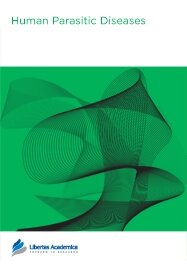

Publication Date: 25 Apr 2011
Type: Original Research
Journal: Human Parasitic Diseases
Citation: Human Parasitic Diseases 2011:3 11-18
doi: 10.4137/HPD.S6970

Background: A high rate of Pediculosis capitis in school children has been reported in some African countries. However, systematic information on ectoparasitosis among school children from Angola is not available. The aim of this research was to determine the prevalence of head lice among school children and ascertain relevant teachers’ knowledge about head lice infestation.
Methods: This cross-sectional study was conducted in 171 randomly selected children attending school in Viana. The children were examined for presence of head lice by visual inspection. In addition, a questionnaire was used to assess teachers’ and children’s’ knowledge about this ectoparasite.
Results: The overall prevalence of head lice was 42.1%, with a significance difference between the genders (girls [95.8%] versus boys [4.2%,] P < 0.001). Self-reported history of being in contact with another person infested with head lice was the main risk factor for becoming infested.
Conclusion: A high rate of head lice infestation was demonstrated. Female gender and history of contact with someone already infested were the main risk factors. Teachers demonstrated a knowledge of the biology and clinical signs of head lice, but did not have adequate knowledge about its treatment, suggesting a need for increased competence on the part of teachers to be able to teach children about preventative measures. However, further systematic epidemiological studies are required to increase our understanding of ectoparasitosis in Angola.
PDF (519.51 KB PDF FORMAT)
RIS citation (ENDNOTE, REFERENCE MANAGER, PROCITE, REFWORKS)
BibTex citation (BIBDESK, LATEX)

My experience publishing in Human Parasitic Diseases was very positive. I was very satisfied with the rapid and high-quality review process and the constructive feedback. The comments from the reviewers allowed me to improve the paper significantly. I highly recommend that other researchers publish their papers in Libertas Academia Journals.
Facebook Google+ Twitter
Pinterest Tumblr YouTube